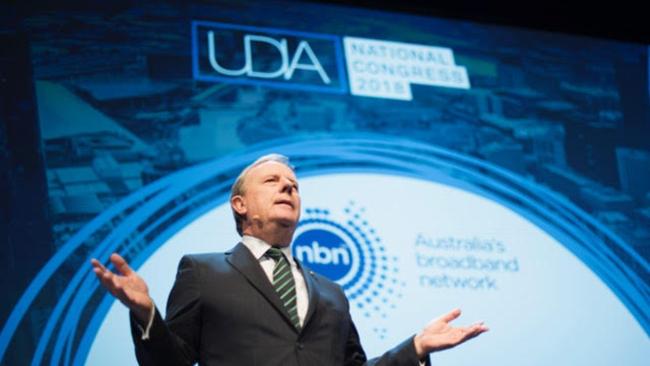‘Painful’ outlook for housing as rates rise: Former treasurer Peter Costello
Interest rate hikes will have “painful” consequences for the property market and household debt, warns former treasurer.

Rising interest rates will have “painful” consequences for the housing market and Australia’s highly indebted households, former federal treasurer and chairman of the Future Fund Peter Costello has warned.
He highlighted the historically low level of Australia’s cash rate, which is now 1.5 per cent but was 7.5 per cent a decade ago, and has remained on hold even as the US Federal Reserve has started to normalise interest rates from emergency levels.
“If money is more expensive, asset prices must fall. Not all prices in every situation but overall they must fall,” Mr Costello told the Urban Development Institute of Australia conference.
“It’s going to be slow and it could be painful and the question is will it be a hard landing or a soft landing but it’s going to be a landing.”
The comments come as housing prices in the once-heated east coast capitals have started to edge lower amid regulatory clamps on lending, with a range of forecasts expecting the falls to continue.
Mr Costello was “amazed” to see politicians wringing their hands about high levels of household debt in Australia, which is about 200 per cent of incomes.
“Of course they are [indebted]. Because we made money so cheap. And we made money cheap because we wanted them to borrow, that was the whole idea … We wanted them to borrow so they’d get the economy moving,” he said.
“The problem is now that you’ve borrowed so much, how do you normalise?”
Mr Costello raised the ongoing royal commission into the financial services industry, saying the banks had been strong through the Global Financial Crisis but a decade later are “on the nose”.
“I’m not excusing the banks. I think many of them made very serious consumer errors,” he said.
“But one thing I always used to say when I was treasurer is this: I’ll tell you what’s worse than a very profitable bank — a loss-making bank.”
The question was how to ensure banks were both “strong and prudential” and “responsive and accountable”.
“We don’t want to trade off prudential strength in our rightful desire to get better consumer treatment,” he said.
Mr Costello also weighed into Labor’s policy to limit dividend imputation credits, defending his introduction of cash refunds for shareholders with a zero tax rate as a pure way of avoiding double taxation.
“You either believe that company dividends should be taxed once or you believe they should be taxed twice. If you believe they should be taxed once then everybody should be taxed at their marginal rate,” he said.
“If you take that away it’s not the rich that are affected, it’s lower income earners.”




